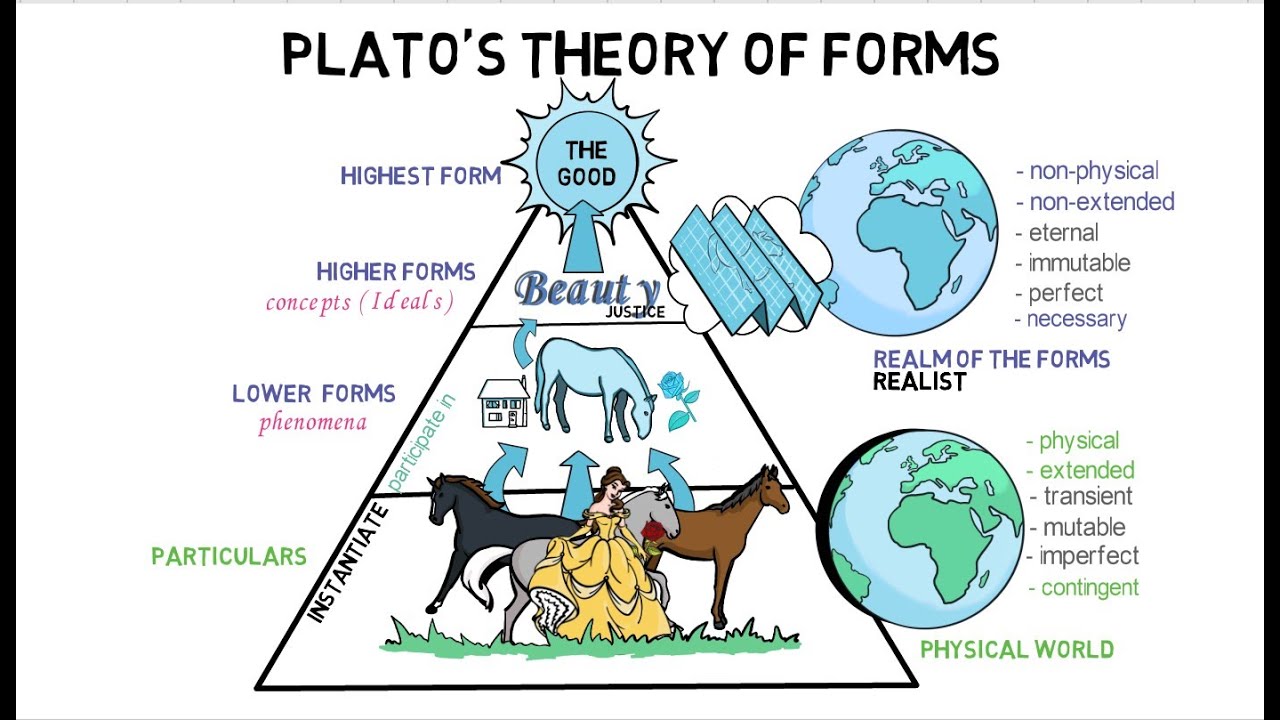Plato’s Theory of Forms and Personal Perception
Mar 25, 2023
This paper explores Plato's Theory of Forms, which asserts that there is an abstract realm beyond physical reality where perfect versions of all objects exist in their ideal forms. It will then examine how personal perception shapes our understanding of the world around us and how this can influence our interpretation of Plato’s Theory of Forms. The paper will discuss the benefits and limitations of Plato’s framework before exploring its implications for modern society.
To begin with, it is important to understand exactly what Plato’s Theory of Forms entails. According to this theory, there exists a realm beyond physical reality where ideal and perfect versions of all objects exist in their purest forms. These ‘ideal forms’ are seen as more real and true than the physical world that we experience, as they are free from the imperfections and limitations of physical objects. Plato argued that understanding these ideal forms allows us to gain true knowledge about the nature of reality, as it is only through this level of abstraction that one can truly understand the essence of an object.
However, our personal perception can shape our interpretation of these ideal forms in many ways. For example, different people may have differing views on what constitutes a perfect version of something due to their own experiences and beliefs. This means that even if two people both subscribe to Plato’s Theory of Forms, they may disagree when it comes to precisely how those perfect versions should look or act. This could lead to confusion about which form should be accepted as the ‘true’ one, or simply to people having different ideas about what constitutes a perfect version of an object.

Despite this potential confusion, Plato’s Theory of Forms still offers many benefits. For example, it can provide a useful way of understanding and analyzing objects in the physical world by helping us to identify their essential characteristics which remain consistent regardless of form. It also encourages us to think abstractly and conceptually rather than focusing solely on the physical attributes of things. Additionally, by shedding light on how personal perception shapes our interpretation of reality, it can help us gain greater insight into the differences between our own views and those of others - allowing us to come together in spite of our various perspectives.
Finally, this paper will discuss the implications of Plato’s Theory of Forms for modern society. It is clear that understanding and accepting the abstract nature of reality can help us become more tolerant and open-minded in our interactions with others who have different views than our own. Additionally, by encouraging us to think conceptually rather than simply relying on physical attributes as a measure of truth, we can gain greater insight into the complexities of life and come to better understand ourselves and each other.
Overall, Plato’s Theory of Forms offers many benefits and insights which still remain relevant today. By examining how personal perception shapes our interpretation of these ideal forms, we can gain deeper insight into both physical reality as well as our own beliefs about it.
